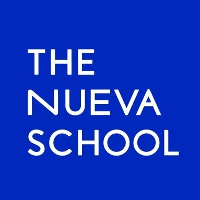South San Francisco, CA April 5, 2021
PREFACE: While our main focus is on, well EVERYTHING South City, from time to time we will share items of interest from surrounding communities, especially when we are able to help highlight good work being done. Congratulations to these students.

Hillsborough, CA – April 5, 2021 – A global pandemic didn’t stop a group of Nueva School students from coming together to participate in an international math competition. A combination of math smarts and creative thinking has added up to a top spot for the team, whose work was selected as one of the best solutions to the problem of how to make internet access available to everyone.
The students – Ryan Cheng, Elliot Chin, Sebastian Deery, ** Joseph Kraus , and Nikhil Thakur of Hillsborough-based Nueva School – advanced to the finals in MathWorks Math Modeling (M3) Challenge, a unique competition that drew more than 2,400 11th and 12th graders in the U.S. and sixth form students in the U.K. this year. The team, whose work underwent intense scrutiny by judges in the first two rounds of assessment, has one last hurdle on April 26 when they present their findings virtually to a panel of professional mathematicians for final validation.
Using mathematical modeling, students had 14 consecutive hours in late February and early March to come up with a solution to a real-world issue: defeating the digital divide to make internet accessible to all. The M3 Challenge problem asked teams to create a model to predict what internet connectivity will cost over the next decade, how minimum required bandwidth should be determined, and an optimal way to distribute cellular nodes in a region to maximize access. A total of 535 teams submitted papers detailing their recommendations.
“This year’s topic touches on several relevant issues we are facing as a global community,” says M3 Challenge director of judging and lead problem developer Karen Bliss, Virginia Military Institute. “One is the social justice aspect of internet access. While this has been a problem for years, the pandemic has highlighted the reality of the digital divide: those who don’t have fast, reliable internet are at a significant disadvantage when it comes to access to education and the ability to work from home, among many other things.”
Since there are so many ways to access the internet (cable, fiber optic, cell phones, public Wi-Fi), it’s not obvious how to best solve this problem. “We asked students to think about how needs vary from person to person and how to best get high-speed internet to rural, suburban, and urban areas. While there’s no one mathematical approach that is the right way to answer these questions, we look forward to seeing how the students used mathematical modeling to reach an answer and explain how what they value shows up in their models,” Bliss says.
Now in its 16th year, M3 Challenge is a program of Philadelphia-based Society for Industrial and Applied Mathematics (SIAM) and is sponsored by MathWorks. It spotlights applied mathematics as a powerful problem-solving tool and motivates students to consider further education and careers in applied math, computational and data sciences, and technical computing. Winning teams will be awarded a share of $125,000 in scholarships, with the champion team receiving $22,500 in 2021.
In addition to Nueva School, the two other Technical Computing finalist teams hail from high schools in Osprey, Florida and Rockville, Maryland.
“After observing these students thrive in inquiry-driven, open-ended projects that couple mathematical reasoning with computational innovation in my classes for a couple of years now, it is very satisfying to see them spread their wings and fly solo as it were, facing up to real-world complexity, and making serious inroads towards managing it. Their work in M3 Challenge fills me with pride, convincing me that our future is secure in their maturing hands,” says coach Ted Theodosopoulos.
Team member Elliott Chin found M3 Challenge to be unique among other math competitions, and fun too. “Participating in M3 Challenge was a great way to apply what we learn in the classroom to the real world. Working together for 14 hours reinforced the importance of teamwork and collaboration—especially in high-pressure situations—as well as the value of taking creative approaches to math. We enjoyed watching our models, which started as disparate and often chaotic combinations of variables, make order out of the complicated systems we were modeling.”
For the second year running, all presentations and judging are taking place virtually instead of at an all-day, in-person event in New York City due to the COVID-19 pandemic.
For more information about M3 Challenge, visit m3challenge.siam.org.
To access this year’s challenge problem, visit https://m3challenge.siam.org/
###
EDIT 4.25.2021 Name change from Melissa Kraus to corrected name of Joseph.